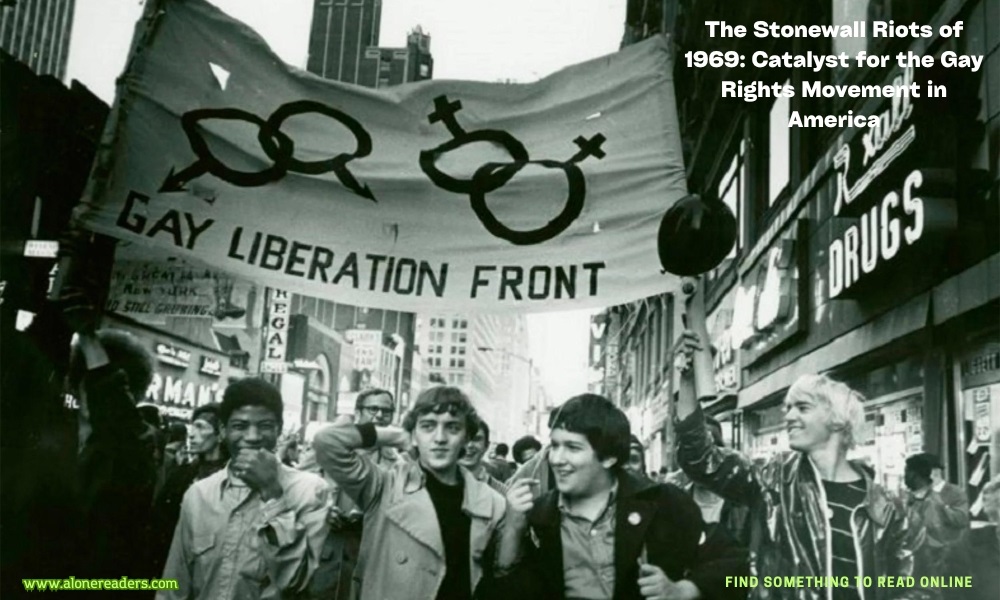
In the early hours of June 28, 1969, a series of spontaneous demonstrations erupted outside the Stonewall Inn, a gay bar in the Greenwich Village neighborhood of New York City. These protests, now famously known as the Stonewall Riots, marked a seminal moment in the modern LGBTQ rights movement. The significance of these riots stems not only from their immediate impact but also from their lasting influence on civil rights campaigns worldwide.
The 1960s were a time of profound activism and social change, but the fight for LGBTQ rights was still largely underground. Homosexuality was considered a criminal offense in nearly every state, and the American Psychiatric Association listed it as a mental disorder. Gay bars like the Stonewall Inn were often the only safe havens where the community could gather, yet these spaces were frequently raided by police.
The Stonewall Inn was owned by the Mafia, which paid off local police to prevent frequent raids. However, on that fateful night, the police descended on the bar with a warrant, intending to arrest anyone violating the city’s stringent morality laws. The patrons of Stonewall, along with hundreds of onlookers, decided to fight back—a decision that would spark a movement.
As police began arresting employees and patrons, particularly those in non-conforming gender attire, a crowd started to gather outside the bar. Tensions quickly escalated as onlookers watched the police roughly handle the bar's patrons. Anger turned to action when an officer hit a woman over the head as he forced her into the police van. The woman, reported to be Stormé DeLarverie, shouted to the crowd, “Why don’t you guys do something?” Her call to arms ignited a full-blown riot. The crowd began throwing bottles, coins, and bricks—the pent-up frustrations of a marginalized community exploding into visible protest.
The riots continued for several nights, involving thousands of people. These were not merely disturbances but rather an outcry against years of institutionalized discrimination. It was a bold declaration that the LGBTQ community would no longer tolerate silent persecution.
In the aftermath of the Stonewall Riots, the gay rights movement gained momentum. Just one year later, on June 28, 1970, the first Gay Pride marches took place in New York, Los Angeles, and Chicago, commemorating the anniversary of the riots. These events laid the groundwork for today's global Pride celebrations. The marches were a powerful testament to the community's resilience and desire to fight for their rights openly.
The Stonewall Riots also prompted the formation of numerous LGBTQ advocacy groups. The Gay Liberation Front and the Gay Activists Alliance, among others, were established with the explicit goal of combating societal and legal discrimination. These organizations adopted different tactics, from radical protests to lobbying for legislative change, illustrating the diverse strategies within the movement.
The legacy of the Stonewall Riots extends beyond the annual Pride parades and the establishment of advocacy groups. It fundamentally altered the discourse surrounding LGBTQ rights. Before Stonewall, the mainstream media seldom covered LGBTQ issues, and when they did, it was often in a derogatory tone. Following the riots, the community's struggles and victories gained visibility, helping to humanize gay individuals in the public's eye and challenge prevailing stereotypes.
Moreover, the Stonewall Riots helped forge a unified identity for the LGBTQ community, one that transcended the individual identities of gay, lesbian, bisexual, and transgender people. This sense of unity was crucial in fostering a collective effort to tackle discrimination and strive for equality.
Today, the Stonewall Inn is a national monument, the first designated U.S. National Monument dedicated to LGBTQ rights. This recognition is a testament to the lasting significance of the Stonewall Riots as both a symbol of the LGBTQ rights movement and a beacon for broader human rights advocacy.
As we reflect on the impact of the Stonewall Riots, it is crucial to remember that the fight for equality is ongoing. The courage displayed during those nights in 1969 continues to inspire activists around the world to strive for a more inclusive and equitable society.